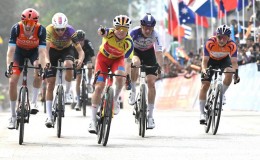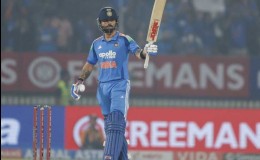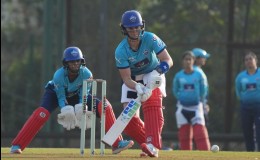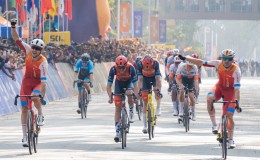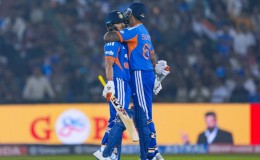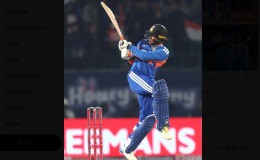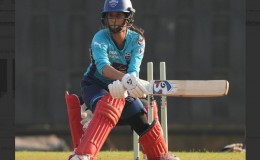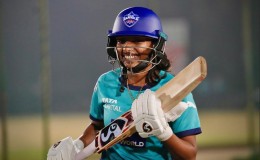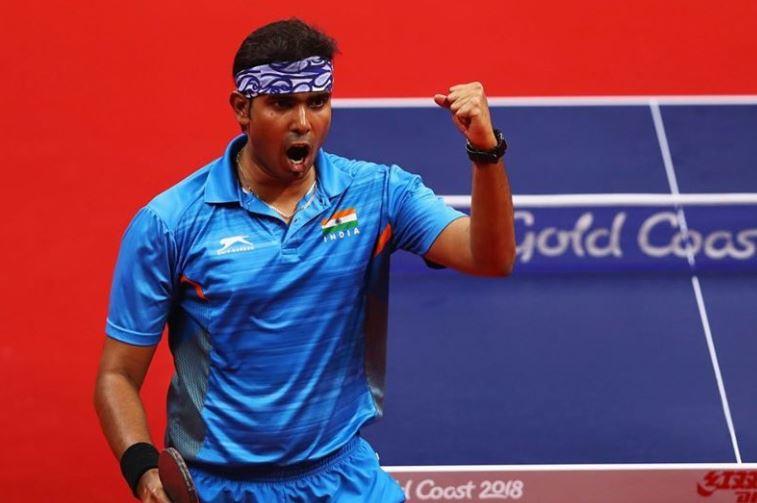 Undoubtedly, one of the finest ever paddlers to have graced the game in India, Achanta Sharath Kamal holds many a first in history of Indian table tennis. Currently ranked 31 (as in April, 2020), he has won the National Table Tennis Championship a record nine times. A three-time Olympian, Sharath won the men's singles gold at 2006 Commonwealth Games. He is also the first Indian to lift the men's singles trophy on the ITTF World Tour and is also the only TT player to have won Padma Shri, the fourth highest civilian award in India.
Undoubtedly, one of the finest ever paddlers to have graced the game in India, Achanta Sharath Kamal holds many a first in history of Indian table tennis. Currently ranked 31 (as in April, 2020), he has won the National Table Tennis Championship a record nine times. A three-time Olympian, Sharath won the men's singles gold at 2006 Commonwealth Games. He is also the first Indian to lift the men's singles trophy on the ITTF World Tour and is also the only TT player to have won Padma Shri, the fourth highest civilian award in India.
Many of us know Sharath Kamal, but is not aware about his secrets of success. In an exclusive interview with Vishal Sharma, Sharath talks about his journey in detail. Excerpts:
Tell us something about your childhood, your first coaching academy and also how you got into Table Tennis?
Sharath: I started playing at the age of 4. My father A Srinivasa Rao and my uncle A Muralidhara Rao were already coaching lots of national and International champions by that time. They used to take me to the club. I used to play with elder kids but then I always had lot of interest in playing this sport and started playing on daily basis. I started competing at the age of 7 or 8 at the state-level tournaments. By the time I reached Class 11, I wanted to turn professional and that’s how I turned professional. I have never played for India at junior levels. I played for India the first time at the age of 20 and I became international champion at the age of 21.
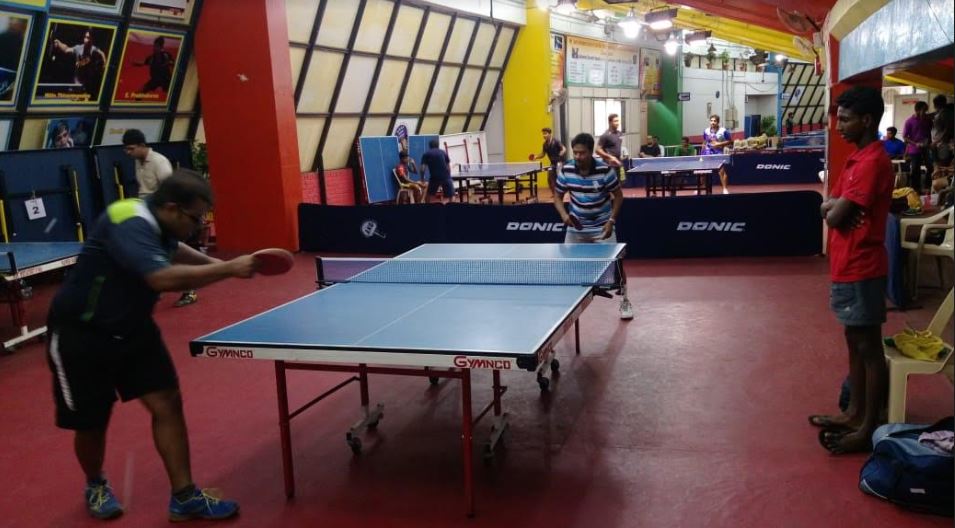 Who is your first coach. Tell us something about you father Srinivas Rao and how he bagged the Dronacharya Award?
Who is your first coach. Tell us something about you father Srinivas Rao and how he bagged the Dronacharya Award?
My father A Srinivasa Rao along with his brother Muralidhara Rao have been coaching a lot of champions even before I started playing. Chetan Baboor, who is an Arjuna Awardee and an Olympian, N R Indu -- who was a national champion, MS Mythili, Arul Selvi, all were their trainees. So, a lot of players were training with them and doing really well. So that was one of the main reasons why they wanted me to do well in the game. So they used to tell me that I have to perform well at international level competitions. And once I started winning medals at international level, I think we -- me as player and my father as a coach -- started getting good recognition. Talking about my father's Dronacharya award, it could have be given only to one coach for an achievement of a player. So, that’s why it was up to them -- either of the two (my father or my uncle) could have applied for that. Eventually my father applied as he was an NIS Coach and in fact he could get the Dronacharya Award because of the performances of his players. Though my dad won the award, but for me and other players who trained in their club, it's an award for both of them.
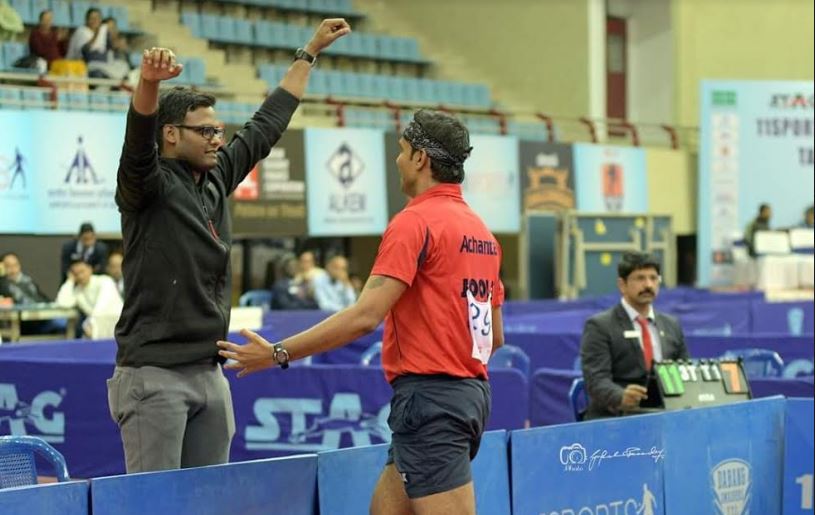 Tell us about your journey so far?
Tell us about your journey so far?
I am really happy that I could play so long and am really thankful to my parents for the kind of support they gave me in my early years. I am also thankful to my co-players at that point of time because without the competition, it would not have been possible for me to play this sport at this level. There were years when I was not doing well in the Nationals. But it was players like my younger brother Rajath Kamal and few others who were working along with me and we all pushed each other and helped get better. I would also like to thank my current family that’s my wife and my kids for supporting me a lot. They are reasons that I am still able to play at highest level.
How much has your training been affected due to COVID-19?.
Yes COVID-19 has completely affected our training. As you know the Olympics has been postponed and lots of international events have been cancelled by the ITTF. So, really don't know how it is going to be. It's very uncertain. It's difficult times for a sportsperson. It has put us in dilemma. We don't know when will the next tournament happen and when we will start our training again. All the academies and gyms are closed and there is no player with whom I can practice with at the moment.
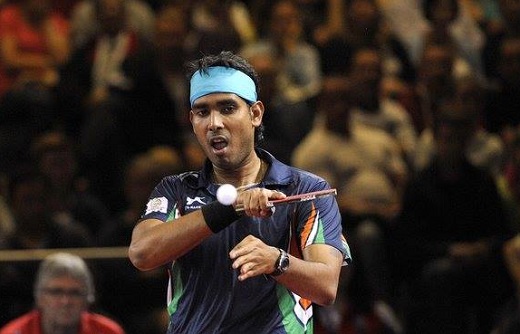
Are you satisfied with your 2019 performances?
Yes, I have been doing well since the last couple of years and have been able to maintain my rankings in the top 40. I had been shuttling between 30 and 40 the whole year and yes I am really happy with how I did in 2019, especially in Hong Kong Open, Korea Open and Australia Open. Most of the people think that I did quite well and I am happy with the way I am playing.
What do you think about Ultimate Table Tennis League, did it help you or others reaching high in ranking?
Yes, it did help the Indian players a lot. I think a lot of match fights every season has helped India do well. In first season, Sathiyan Gnanasekaran and Manika Batra did very well and they soon started progressing at international events. Similarly in the second season, it helped Manav Thakkar and Archana Kamath and in 3rd season Sutirtha Mukherjee did well for herself. I think it's giving us the right kind of platform to compete against some of the best in the world because you know we are able to beat them and when you are able to beat them at UTT here, we have the right kind of confidence. Now we don't get intimidated by the top players at international level.
Vishal Sharma is a sports enthusiast and a writer based out of Delhi. An avid traveller, he is also very passionate about music.


